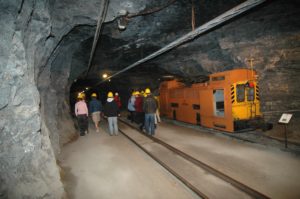El Salvador Outlaws Mineral Mining
 El Salvador became the first country to outlaw mineral mining on March 29 after its Legislative Assembly voted to permanently extend the country’s existing, albeit temporary, ban on mining.
El Salvador became the first country to outlaw mineral mining on March 29 after its Legislative Assembly voted to permanently extend the country’s existing, albeit temporary, ban on mining.
The anti-mining bill is aimed at protecting the environment and the country’s drinking water from mining practices that have a long history of contaminating groundwater in Latin America. The motion passed easily in the Legislative Assembly with a margin of 69-15 after the body received more than 33,000 formal signatures in favor of the resolution. Officials estimate that approximately 77 percent of the population was in support of the mining ban before the legislative vote.
The Catholic Church and regional universities led by the Universidad Centroamericana José Simeon Cañas spearheaded the anti-mining campaign. These groups have worked together in community organizations, protests, and lobbying efforts since the legislative debate renewed last year.
In 2008, El Salvador temporarily banned the mining of metals until there was a proper study of its environmental impacts. In response, a Canadian mining company sued the government over land rights, claiming ownership of its sites. The international arbitration court handling the case finally came to a decision and ruled in favor of El Salvador in October 2016.
El Salvador has become the first country to completely illegalize metal mining, a decision that is seen as economically unorthodox. For many countries, especially in the developing world, the extraction of natural resources makes up a significant part of the GDP, which makes El Salvador’s decision unusual in its economic altruism. Environmentalists and social activists are heralding the decision as groundbreaking and hope that other nations will follow its lead.
